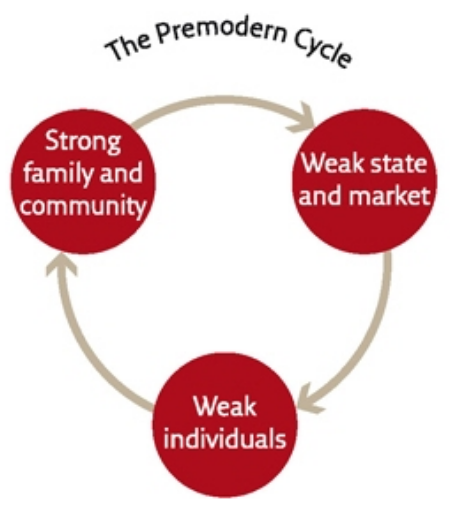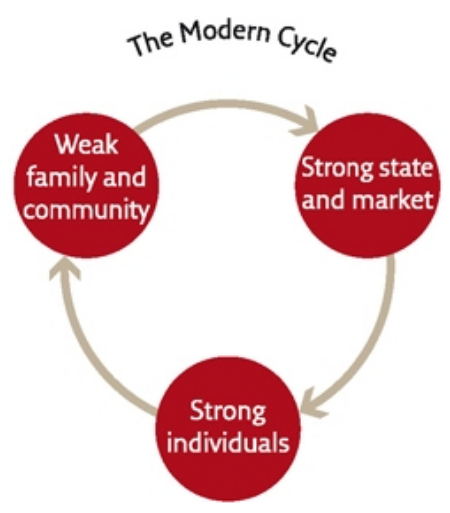
英語でSapiens を読もう📖#18
For English learners!
Hello everyone, how’s your English learning journey going?😃 Reading an English book is sometimes a long journey. You might inadvertently stop if you are alone. But no worries. You are at the right place already. I would like to explore an English book here so that you can try reading the book with me. We are not alone. Let’s enjoy a fun time reading!
The book, which I picked up this time, is called Sapiens, published by Yuval Noah Harari. The Amazon Kindle link below allows you to read up to chapter 3. Today, I am covering chapter 18.
You can check out my recommending strategy of reading as well as a bit of information about this book with a link below. Okay then, let’s get started📖
日本語学習者のみなさん!
みなさん、こんにちは。あずみです。日本語の勉強はどうですか?やさしい日本語で読むのに飽きてきたあなたに、もうワンランク上のリーディングをお届けしたい、ここはそんなブログです。英語部分で私が書いていることを、日本語で書くならこんな感じというのがテーマです。ぜひ、カジュアルな日本語のライティング表現を体験しながら、同時に興味深い本の内容も楽しんでボキャブラリーの幅を広げてくださいね。😃
英語の勉強、はかどってますか?英語の本を読むのって長い旅路ですよね。うっかり止まって挫折してしまうのはとても簡単です。でもこのブログを読んでいるあなたはだいじょうぶ。そんなあなたを応援するのがこのブログです。このブログで私は本を取り上げ、掘り下げていきたいと思いますので、よかったら私といっしょにこの本にチャレンジしてみてください。
今回読む本は、ユヴァル・ノア・ハラリさんの「サピエンス全史」です。本の内容はアマゾンキンドルのリンクから試し読みで確認してみてください。
また、こちらのリンクから英語の本のオススメの読み方について取り上げています📖ぜひ確認してみてくださいね。さぁ、18章を読みましょう。
Ch.18 A Permanent Revolution
第18章 国家と市場経済がもたらした世界平和
Grasp the structure!🦧構成を把握する

To grasp the chapter, you just try to see its hierarchical configuration. I strongly recommend drawing it either physically or virtually.
階層構造を追い、内容を把握します。実際にメモを取りながらするとはかどります。
🚧工事中 🚧
🚧工事中 🚧
🚧工事中 🚧
🚧工事中 🚧
Summarize the chapter concisely🦧章を一言でまとめる

To summarize, check the hierarchical configuration and make sentences with important points of each.
階層構造の各部分のポイントを確認して、文にしてまとめます。
Along with the Industrial Revolution, Sapiens have degraded the ecosystem to fit their needs. Sapiens population has grown as well as domesticated farmyard animals, while wild animals have decreased. Industrialization brought various upheavals. Legislation of time is one of the most significant. The market and the state, which gained immense new powers, have intervened and weakened the bond of the family and the community, which was the strong aspect of culture. Whereas individuals have become alienated and threatened by the power of the market and the state. The replacement of the family and community is ‘imagined communities,’ supplying tribal bonds. Nationalism works hard for nations, while consumerism works hard for the consumer tribes. The social order has been changed from hard and rigid to swift and radical. Although people experienced wars and genocide, it has been also the most peaceful era. And, it enables us to initiate radical structural changes without collapsing into violent conflict. Modern life become significantly peaceful thanks to the rise of the state. The decline of violence is due largely to state-run courts and police forces. International violence has dropped to an all-time low. Since 1945 most empires have opted for peaceful early retirement. States have no longer invaded other states in order to conquer and swallow them up. Wars are no longer the norm. The global empire effectively enforces world peace.
産業革命とともに、サピエンスは自身のニーズに合うように生態系を壊してきました。その結果サピエンスの人口は家畜の数と共に増加してきましたが、野生動物の数は減少しています。工業化はまた様々な激変をもたらしました。時間の立法もその最たるもののひとつです。巨大な新しい力を獲得した市場と国家の介入は、文化的側面も強い家族とコミュニティの絆を弱めました。一方、個人は家族やコミュニティの繋がりが弱まったことによって疎外感を増し、市場や国家の権力にも脅かされています。家族とコミュニティの代わりは「想像上のコミュニティ」です。それは想像上のコミュニティ内の見知らぬ者同士に架空の絆をて供給するのです。ナショナリズムや、大量消費主義は各々の想像上コミュニティの活性化に最善を尽くしています。社会の秩序は、かつての堅固なものから、迅速で急進的なものに変わりました。人々は時に戦争と大量虐殺も経験しましたが、これはまた最も平和な時代でもありました。そして、この平和は私たちが暴力的な紛争に陥ることなく根本的な構造変化に着手することを可能にします。国家の台頭により、現代の生活は非常に平和になっています。暴力の減少は、主に裁判所や警察などによるものです。国家間の暴力は史上最低の落ち込みをみせています。 1945年以来、ほとんどの帝国は平和的な早期引退を選択してきました。国家は他の国家を征服して併合するような侵略をもう行っていません。戦争はもはや規範ではなくなったのです。グローバル帝国は今効果的に世界平和の実施に努めています。
Make questions to discuss🦧ディスカッション用の質問を作ろう

To discuss, make questions. It gives you a great topic to talk about in English.
本について話し合うための質問を作ります。作った質問は英語で話をするときのいい話題になりますよ。
What does it mean? How are the parts connected? what is the reason for people’s actions?
There is more than one possible answer, but the viewer’s opinion is based directly on the text.
ここはどういう意味でしょう?これらの箇所はどう繋がっていますか?この行動にはどんな意味がありますか?
答えは2つ以上考えられますが、質問の答えは本文に直接基づいている必要があります。
My opinion: The four factors that the author listed up in this chapter are interesting. It is convincing for me to believe why peace has been maintained. Meanwhile, I was a bit unclear that why empires chose earlier retirement such smoothly, and I was wondering if nuclear weapons also contributed to it. Although I would think that nuclear weapons will keep helping us to maintain peace, I think it is just better we assume WWIII is likely to happen since history tends to choose an unlikely option. By the way, I learned the word ‘Pax Atomica’ for the first time. Did you hear of it before? Do you agree with the author’s statement that “the Nobel Peace Prize to end all peace prizes should have been given to Robert Oppenheimer and his fellow architects of the atomic bomb”? As a person who had education about the atomic bombs heavily in school hood, it was a mind-blowing way of thinking that how it is seen globally.
私の意見:著者がこの章に挙げた4つの要素はとても興味深かったです。なぜ平和が現在維持されているのか、ということにすごく説得力がありました。一方でなぜ帝国がこれほどスムーズに早期退職を選択したのかは少しわかりませんでしたが、核兵器の存在はそちらにも貢献した可能性があるのかもしれないと思ったりしました。核兵器は私たちが平和を維持するのに貢献していることは肯定しますが、歴史はありそうもない選択肢を選ぶ傾向があるので、第三次世界大戦が起こりそうだと仮定して行動する方が良いと思います。ちなみに、初めて「パックスアトミカ」という言葉を学びました。聞いたことがありましたか?「すべての平和賞を終わらせるためのノーベル平和賞は、ロバート・オッペンハイマーと彼の原子爆弾の建築家たちに与えられるべきだった」という著者の考えに賛成しますか?学生時代に原爆についての教育を受けてきた人間としては、核兵器が「パックスアトミカ」という考え方でもって世界平和に寄与する存在として見られていることにただただ驚きの一言でした。
five questions for discussion🦧ディスカッション用の5つの質問
How does this make me feel? What does it remind me of?
There are many correct answers that are related to one’s experience; they can be found outside of the text/speech.
この箇所はどんな風に感じますか?何を思い出させますか?
個人の経験に関連するたくさんの答えが本文の外で見つけられることが考えられます。
What does it say?
One correct answer is found in the text.
なんと言っていましたか。
答えは一つです。テキスト内でみつけることができます。
What does it mean? How are the parts connected? what is the reason for people’s actions?
There is more than one possible answer, but the viewer’s opinion is based directly on the text.
ここはどういう意味でしょう?これらの箇所はどう繋がっていますか?この行動にはどんな意味がありますか?
答えは2つ以上考えられますが、質問の答えは本文に直接基づいている必要があります。
What is the message beyond this presentation? What are the greater issues or questions this piece deals with?
The presentation is not directly referenced in the question. There are many possible answers found outside of the presentation, but it’s a starting point.
このトピックが伝える、もっと大きなメッセージはなんでしょう?このトピックの先にどんな大きな問題が見えますか?
この質問は、このトピックと直接リンクする必要はありません。この話の外側にたくさんの答えがあるでしょう。でも、このトピックがいいスタートポイントになります。
How effective is the presentation in whole or in part? Why did the speaker/author make these choices and how well do they work?
Many possible answers can be found outside of the presentation but it’s a reference.
この箇所は全体の中で/この部分においてどう効果的な役割を果たしていますか?どうして話者はこのような表現をしましたか、またそれはどのように機能していますか?
たくさんの答えが本文の議論の外でひとつの例としてみちびかれる可能性があります。
Expressions and terms🦧覚えておきたい単語・表現

Pick some terms that you are unfamiliar with from sentences you high-lightened and memorize them because you need them to discuss this chapter!!
読みながらハイライトした特に重要だと思う文の中から、使い慣れていない言葉を選んで覚えましょう。なぜかというと、ディスカッションで意見や考えを言うために必要になるからです。
| term | example sentence |
|---|---|
| upheaval | The Industrial Revolution brought about dozens of major upheavals in human society. |
| befall | Yet all of these upheavals are dwarfed by the most momentous social revolution that ever befell humankind: the collapse of the family and the local community and their replacement by the state and the market. |
| proletariat | Parents and community elders were reluctant to let the younger generation turn into a rootless urban proletariat. |
| bewail | The liberation of the individual comes at a cost. Many of us now bewail the loss of strong families and communities |
| breach | For it breaches countless generations of human social arrangements. Millions of years of evolution have designed us to live and think as community members. |
| 単語 | 例文 |
|---|---|
| 激変 | 産業革命は、人間社会に何十もの大きな激変をもたらしました。 |
| 降りかかる | しかし、これらの激変のすべては、これまで人類を降りかかった最も重大な社会革命、つまり家族と地域社会の崩壊、そして国家と市場によるそれらの置き換えによってかすんでいます。 |
労働者階級 | 両親や地域の長老たちは、若い世代を根のない都市の貧しい労働者階級に変えることに消極的でした。 |
| 嘆く | 個人の解放には代償が伴います。私たちの多くは今、強い家族やコミュニティの喪失を嘆いています |
| 違反する | それは無数の世代の人間の社会的取り決めに違反しているからです。何百万年もの進化により、私たちはコミュニティのメンバーとして生き、考えるようになりました。 |

I saw a post, which was written by a British the other day, says that “We do not exist for the sake of something else. We exist for the sake of ourselves.” However, if I interpret ‘we’ as each mutual individual, it sounds literally “Becoming Individuals,” which the state and the market have propagated. If I interpreted ‘we’ as the family and the community, it sounds completely opposite. For me, it sounds like “each individual exists for the sake of themselves.” Therefore this kind of well-meaning message can be seen as full of ignorance toward other cultures that still possess the cultural aspect of valuing family and local communities. Since it is obvious that liberated individuals are suffering from being alienated, I feel like ‘please do not draw us into your hell swamp.’
先日イギリス人が書いた「私たちは何か他のもののために存在するのではなく、私たち自身のために存在するんだ」という投稿を見ました。『私たち』を‘一人一人’と解釈すると、それは文字通り『個人になろう』という国家と市場が広めた宣伝文句そのもののようです。しかし『私たち』を‘家族や地域社会’と解釈すると、まったく反対のメッセージになりますよね。私としては、「一人一人が自分のために存在している」という主張に感じられました。ゆえに、この種の自分が良かれと思って発信するメッセージは、家族や地域社会を大切にするという文化的側面をまだ保っている他の文化に対する無視や軽視のように見えたわけです。家族や地域社会から解放された個人が、市場と国家が支配する現代の暮らしの中で疎外感に苛まれているのは明らなわけで、どうしても「私たちをあなたたちの地獄沼に引き込まないでよ頼むから」と思ってしまうというわけです。







コメント